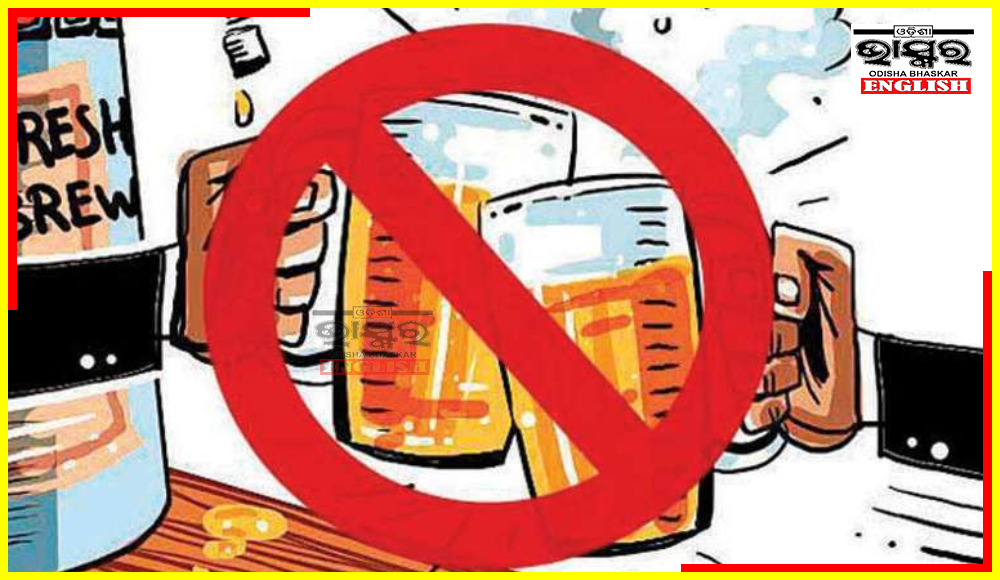The death toll in Bihar’s spurious hooch tragedy has risen to 70, compelling all to analyze whether the imposition of total prohibition through law is practically possible or not. This liquor tragedy has again proved that it is never possible to stop the liquor menace through any law.
Apart from Bihar, several other states of India have also experimented with laws to curb liquor consumption. There has been total prohibition as well as partial restriction on liquor sales. Let us study these prohibition laws in different states.
Bihar’s Experiment:
In Bihar, liquor prohibition law came into force in April 2016. It led to an annual revenue loss of around Rs 5000 crore for the Bihar government. At present, anyone caught drinking for the first time in Bihar gets released after paying a fine between Rs 2,000 and Rs 5,000. If a first-time offender fails to pay the penalty, then he/she faces one-month of jail. If a person is caught consuming liquor for the second time, then the person will face imprisonment for one year.
No Liquor in Gujarat:
Gujarat’s strict prohibition law came into effect in 1949. Under it, one can get 7-10 years of imprisonment if found drinking or possessing alcohol. Persons found guilty of causing liquor deaths can get the death penalty in Gujarat.
In 2009, the death penalty was introduced in the prohibition law in Gujarat when over 50 people died in a spurious liquor tragedy.
Haryana Turns Back:
In 1996 Haryana’s Bhajan Lal government in Haryana Janhit Congress was the chief imposed prohibition in the state. The ban on liquor could not be implemented effectively in Haryana as it resulted in large-scale smuggling and the emergence of the liquor mafia. The law could not be implemented and the ineffective imposition of prohibition cost the state government around Rs 1,200 crore during that time.
Doctor’s Certificate to Drink Liquor in AP:
While total prohibition continued in AP, the then Chief Minister Chandrababu Naidu introduced the ‘permit room’ concept. It meant liquor was sold in special counters run by the state breweries corporation. One had to produce a doctor’s certificate to buy alcohol. The impracticality of this rule led to its abolition.
Kerala’s practicality:
In 2014 the Congress CM of Kerala Oommen Chandy started implementing restrictions on the liquor consumption phase. Under this approach around 418 bars were closed down in Kerala.
But the recent Kerala government has no intention to put a ban on liquor to curtail socio-legal issues as the prohibition of liquor gives birth to illegal means of getting it. In March this year, the Kerala government made changed its liquor policy allowing beer pubs in IT parks, permission for more retail outlets with better facilities, and more low-alcohol brands.
Tamil Nadu:
Tamil Nadu was having complete prohibition on liquor till 1971 when the DMK government led by M.Karunanidhi lifted the ban on liquor to avoid revenue loss because people continued to drink in the state despite the ban
North-Eastestern States:
The Nagaland Liquor Total Prohibition (NLTP) Act, 1989, prohibits the possession, sale, consumption, and manufacture of liquor, import, and export. The state continues with the ban despite the revenue loss.
Mizoram remained a dry state for about 18 years till the Congress government in 2015 lifted the ban on the sale and consumption of alcohol. Due to the pressure from churches and social organizations now Mizoram has resorted to partial prohibition. Now the sale of locally-made wine is only allowed in Mizoram.
Complete prohibition continued in Manipur since 1991. CM Nongthombam Biren Singh decided to lift the prohibition partially to generate Rs 600 crore in annual revenue. But the draft Manipur Liquor Regulation Policy faced protests. This draft policy issued on October 4 claims to address the problem of the black market in liquor due to prohibition and the menace of illegal drugs.




Comments are closed.